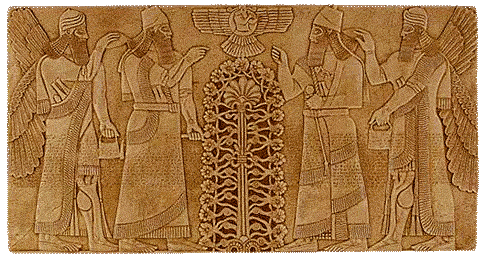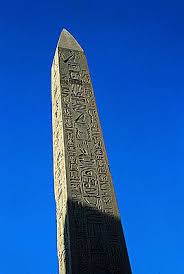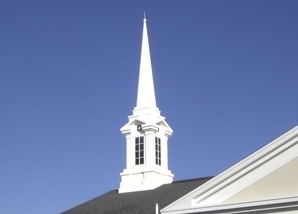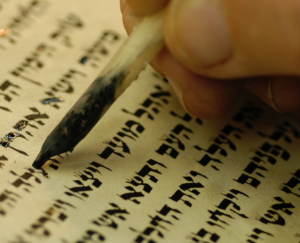שופטים
Parsha Shoftim
Debarim (Deuteronomy) 16:18-21:9
“Appoint judges and officers within all your gates, which YaHuWaH your Elohim is giving you, according to your tribes. And they shall judge the people with righteous right- ruling. – Debarim (Deuteronomy) 16:18
This Torah portion begins with instructions to appoint שופטים Shoftim, which are Judges and Shoterim also known as officers or “law enforcement” within each city of the tribes of Yisrael (Yashar’al). The Judges and Law Enforcement officers are held to the highest standards of righteousness (Tzedakah). They are prohibited to pervert justice and equity under the law by accepting bribes “for bribery blinds the eyes of the wise and perverts just words.” Further Mosheh (Mushah) reiterates “tzedek tzedek tiredof”, tzedek means righteousness, right-ruling, justice etc. here is repeated twice to emphasize the dual nature of righteousness involving motive and action. “Tzedek tzedek” followed by the command tiredof meaning you pursue or follow closely. Again this covers the motivation for the action and the action itself. One can give charity for show, aid the orphan for financial gain, and support the widow for a pretense all done under the mask of hypocrisy. This is why we must closely follow in purpose and in deed.
After this Mosheh (Mushah) again reminds his people of the prohibition YaHuWaH has placed on Asherim, which are idolatrous trees, used in pagan worship, obelisks, idols and all forms of idol worship.
Debarim (Deuteronomy) 16:21“Do not plant for yourself any tree as an Asherah near the altar of YaHuWaH your Elohim that you make for yourself.22 “And do not set up a pillar, which YaHuWaH your Elohim hates.
As covered in the previous Torah Portion “Re’eh” the sacred tree or Asherah refers to the female deity to which it is named for. Pagan temples generally landscaped their places of worship according to magical principles designed to beautify their sinful worship. This was also done remembrance of the phallic of Osiris, Tammuz, Mithras who essentially is the incarnation of “Ba’al”, the same “Ba’al” of Peor which lead Yisrael astray by the council of Bilaam son of Beor. Today the Asherah is largely recognized as the Babylonian Tree of Life, the Yalda, Yule and Christmas tree of today are all “sacred trees” and derived from the Asherah. Famous Obelisks of today are found in Egypt, St Peter’s Square and Washington DC to name a few places of influence.
YaHuWaH has likened all idol worship, as the same as offering blemished animals to him for all are toe’bah meaning abomination. Abomination most literally implies that the act itself is sickening and revolting. YaHuWaH only accepts perfect offerings, without blemish of clean animals as prescribed throughout the Torah. All idol worship including its varying forms is punished by death, however two or three witnesses can only carry out the conviction. The one who has involved him or her self with idol worship must be stoned to death, the hands of the witnesses being first. The court, known as the “Beit Din” (House of Judgement), is the highest law of the land so to speak baring the responsibility to enforce Torah in affairs entrusted to man. Though YaHuWaH has called for Judges and Officers, he knows the limitation of man’s judgment and therefore he judges all matters done on earth personally. However having created Adam (man) in his image and likeness he imparts the greatest aspects of himself to man to emulate on the earth. Thus YaHuWaH the greatest Shof’at (Judge) has appointed a hierarchy of order, law and justice and has endowed man to conform and also actively participate “so that it may be well with you.”
Debarim (Deuteronomy) 17:8“When any matter arises which is too hard for you to judge, between blood and blood, between plea and plea, or between stroke and stroke – matters of strife within your gates – then you shall rise and go up to the place which YaHuWaH your Elohim chooses,9and shall come to the priests, the Lewites, and to the judge who is in those days, and shall inquire. And they shall declare to you the word of right-ruling,10 and you shall do according to the word which they declare to you from that place which YaHuWaH chooses. And you shall guard to do according to all that they instruct you.11“Do according to the Torah in which they teach you, according to the right- ruling which they say to you. You do not turn to the right or to the left from the word which they declare to you.
According to this passage the Sof’tim or Judges in Yerushalayim (Jerusalem), the place where YaHuWaH chose to make his name dwell, would be Kohanim and they have the highest authority. Their authority is so great that they are given the ability to interpret the Torah above all other interpretations in order to enforce the laws of the land. One must subject himself to the rule of the Judges, whose rule must be in line with YaHuWaH.
Debarim (Deuteronomy) 17:12“And the man who acts arrogantly, so as not to listen to the priest (Kohan) who stands to serve there before YaHuWaH your Elohim, or to the judge, that man shall die. So you shall purge the evil from Yisra’el.13“And let all the people hear and fear, and no longer do arrogantly.
The Kohan stands as an ambassador of YaHuWaH. His role must be entirely respected and his position should not be undermined.
Future Sovereign
YaHuWaH in his infinite wisdom predicted Yisrael’s choosing a future Sovereign. Surely we know that this Sovereign would be of the lineage of the tribe of Yahuwdah due to the prophecy spoken by Yaacob over his Son Yahuwdah stating “the scepter shall not depart from Yahuwdah.” Further he made reference to Shiloh coming, which is an ancient word referencing the Anointed Sovereign Mashyach who would rule and reign forever. This promised one is the star which Bilaam the false prophet made reference to when he said “I see him but now”…
Debarim (Deuteronomy) 17:14“When you come to the land which YaHuWaH your Elohim is giving you, and shall possess it and shall dwell in it, and you shall say, ‘Let me set a sovereign over me like all the gentiles that are around me,’15 you shall certainly set a sovereign over you whom YaHuWaH your Elohim shall choose. Set a sovereign over you from among your brothers, you are not allowed to set a foreigner over you, who is not your brother.
The Sovereign is not allowed to multiply too many horses for himself insomuch as to make his people go back down to Mitsrayim (Egypt). He is also not to have too many wives so that his heart is turned away from YaHuWaH. In addition he is not too increase for himself too much wealth in the way of silver and gold.
Further the Sovereign must scribe for himself an exact copy of the Torah that is to be ever present with him. This is to teach him not only to be a servant of YaHuWaH and his fellow brothers but also to be humble. Humility is one of the great lessons of Torah.
When Yisrael decided later that it must have a Sovereign they declared, “so that we will be like all the other nations” in so saying they had declared that they wanted to conform to man instead of conforming to the true Sovereign of the Universe who is YaHuWaH. This made YaHuWaH very angry but he honored their request and gave them Shaul. Shaul turned from the righteous course laid out by YaHuWaH and thus his reign was stripped from him and given to Dawid who is called David. “The star”, “the lion of Yahuwdah”, this Anointed Sovereign who is to come had to come through the lineage of Dawid as outlined further in the Tanakh. We know this one who is to rule and reign as Yahuwshuwa, who has come already and suffered rejection, persecution and death and has been resurrected to rule and reign at the right hand of YaHuWaH to fulfill Dawid’s own Psalms such as Psalm (Tehillim) 110.
After instructing the twelve tribes concerning their future as a Monarchy, Mosheh (Mushah) again reminds them of their duty to the Kohanim and the Lewites. Yisrael (Yashar’al) is to sustain the Kohanim (Priests) with their tithes, offerings and sacrifices.
Debarim Deuteronomy 18:10 “Let no one be found among you who makes his son or his daughter pass through the fire, or one who practices divination, or a user of magic, or one who interprets omens or a sorcerer,11 or one who conjures spells, or a medium, or a spiritist, or one who calls up the dead.12 “For whoever does these are an abomination to YaHuWaH, and because of these abominations YaHuWaH your Elohim drives them out from before you.13 “Be perfect before YaHuWaH your Elohim,14for these nations whom you are possessing do listen to those using magic and to diviners. But as for you, YaHuWaH your Elohim has not appointed such for you
The King James Version accurately defines “interprets omens” as “observer of times”. In fact both are translations are true. To interpret omens, or signs a diviner would look to the celestials, the sun, moon and stars including the planets. For this reason all pagan religions honor certain times such as the winter solstice, today associated with Yule, Christmas and the ancient feast of Mithra and Tammuz. You will also notice the observation of the vernal equinox associated with Ishtar, Easter, Ostara, Astarte and various versions of the female deity. In this way YaHuWaH considers anyone who observes pagan holidays such as Christmas, Easter, Halloween, or any such holidays that are not outlined in the Torah as an active practitioner in witchcraft and the occult and such a person is to be killed according to YaHuWaH.
Debarim (Deuteronomy) 18:15“YaHuWaH your Elohim shall raise up for you a Prophet t like me from your midst, from your brothers. Listen to Him,16 according to all you asked of YaHuWaH your Elohim in Horeb in the day of the assembly, saying, ‘Let me not hear again the voice of YaHuWaH my Elohim, nor let me see this great fire any more, lest I die.’17 “And YaHuWaH said to me, ‘What they have spoken is good.18 ‘I shall raise up for them a Prophet like you out of the midst of their brothers. And I shall put My Words in His mouth, and He shall speak to them all that I command Him.19 ‘And it shall be, the man who does not listen to My Words which He speaks in My Name, I require it of him.20‘But the prophet who presumes to speak a word in My Name, which I have not commanded him to speak, or who speaks in the name of other mighty ones, even that prophet shall die.’
Mosheh (Mushah) again prophesied concerning the coming of the Prophet that is to come. The word prophet is Nabi (Navi) in Hebrew, which literally means a seer. The purpose of the one who sees is not to see a vision or a dream but to see the way of YaHuWaH. What do we know about the man Mosheh so that we may know what to look for in the Prophet that is to come? He was the only prophet according to the Torah itself who knew YaHuWaH face to face. Yahuwshuwa the Messiah (Ha Mashyach) is the Prophet (HaNabi), which was to come. He is in fact the Malak (Messenger) of the Face in fleshly form. The similarities between Mosheh and Yahuwshuwa are too many to name here, both men were shepherds, were spared from death decrees as infants, preached YaHuWaH’s Torah, renewed the covenant, were rejected and grumbled against, were humble, fed multitudes and gave them water to list a few.
Further Mosheh (Mushah) gave insight into the cities of refuge that were safe havens for those who had accidentally committed man slaughter. Moving the boundary markers are forbidden. False witnesses if refuted through zomemim involving two or more witnesses are inflicted with the punishment they desired to see on the ones they falsely accused.
Torah for War
A Kohen titled the mashuach milchamah, “anointed for battle” is assigned to the task of organizing the people for war. “Shema Yisrael,” (hear and do Yisrael) he proclaims, “You are drawing near today to battle with your enemies. Do not let your heart faint, do not fear, or tremble, or be afraid before them, for YaHuWaH your Elohim is He who goes with you, to fight for you against your enemies, to save you.’
YaHuWaH in his compassion and chokmah (wisdom) has the officers announce:
‘Who is the man who has built a new house and has not dedicated it? Let him go and return to his house, lest he die in the battle and another man dedicate
6 it. ‘And who is the man who has planted avineyard and has not begun to use it? Let him also go and return to his house, lest he die in the battle and another man should begin to use it.
7 ‘And who is the man who is engaged to a woman and has not taken her? Let him go and return to his house, lest he die in the battle and another man take her.’8 “And the officers shall speak further to the people, and say, ‘Who is the man who is afraid and tender of heart? Let him go and return to his house, lest the heart of his brothers faint like his heart.’
The conditions for Shalom (peace) must first be offered to a city. If the conditions cannot be met then and only then does war begin. In the process of war no fruit trees are to be destroyed, only non-fruit-producing trees may be cut down in order to make things needed for war. This is symbolic of the future when the Messengers of YaHuWaH come to the earth, all those who bare fruit shall not be destroyed.
Egla Arufah (Anonymous Murder Victim)
Debarim (Deuteronomy) 21:“When anyone is found slain, lyingin the field in the land which YaHuWaH your Elohim is giving you to possess, and it is not known who smote him,2 then your elders and your judges shall go out, and they shall measure the distance from the slain man to the cities round about.3“And it shall be that the elders of the city nearest to the slain man shall take a heifer which has not been worked and which has not pulled with a yoke,4and the elders of that city shall bring the heifer down to a wadi with flowing water, which is neither ploughed nor sown, and they shall break the heifer’s neck therein the wadi. 5 “And the priests, the sons of Lewi, shallcome near, for YaHuWaH your Elohim has chosen them to serve Him and to bless in the Name of YaHuWaH, and by their mouth every strife and every stroke is tried.6 “And let all the elders of that city near- est to the slain man wash their hands over the heifer whose neck was broken in the wadi.7“And they shall answer and say, ‘Our hands have not shed this blood, nor have our eyes seen it.8 ‘O YaHuWaH, forgive Your people Yisra’Ãl, whom You have redeemed, and do not allow innocent blood in the midst of Your people Yisra’Ãl.’ And the blood-guilt shall be pardoned to them.9“Thus you purge the guilt of innocent blood from your midst when you do what is right in the eyes of YaHuWaH.
All sin must be purged, in this case YaHuWaH will eliminate the one who committed murder. However we are responsible to some degree for what takes place in our community, thus we are to purge the sins from our midst. In Messiah we have hope.







